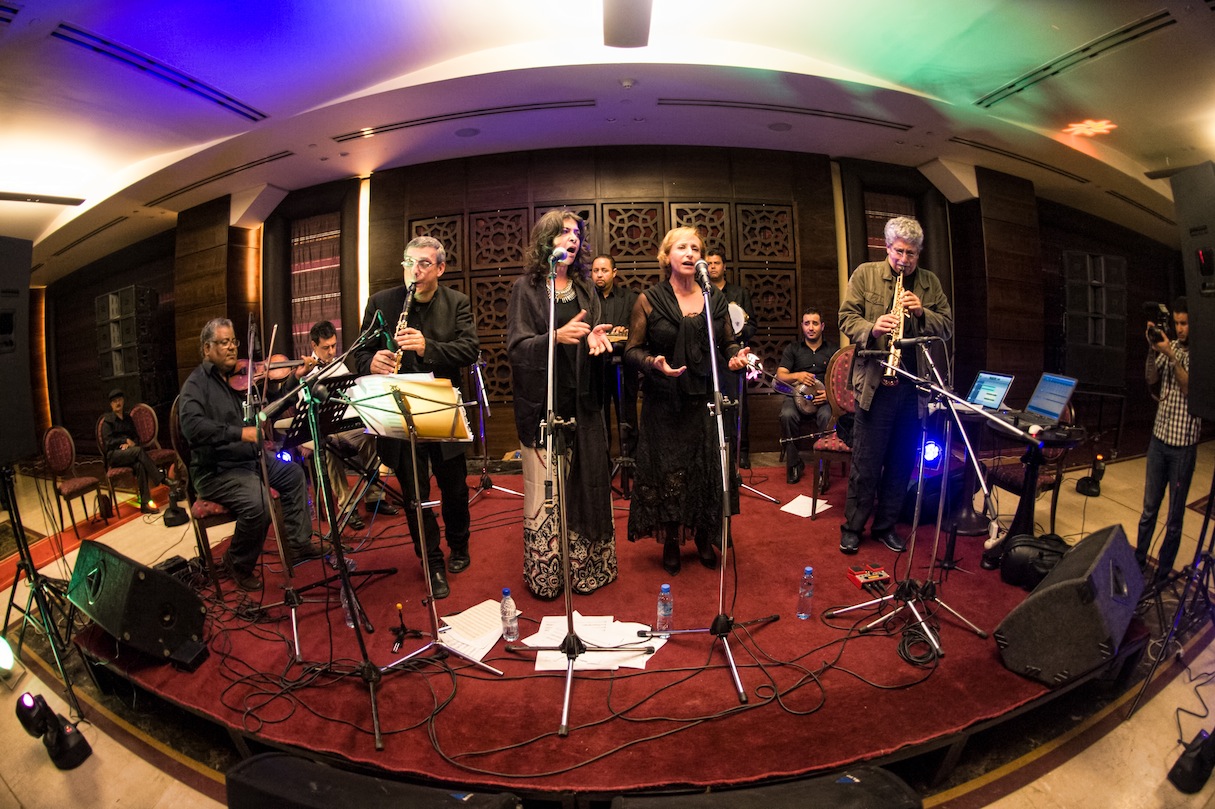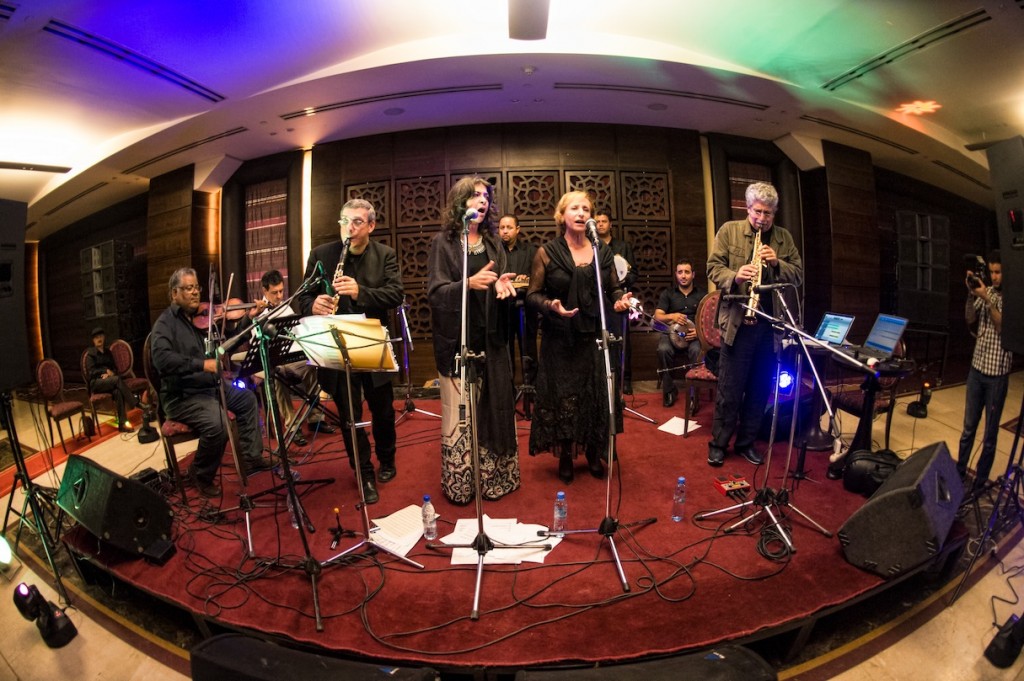By Michel Cousins.
Tripoli, 23 November:
Anyone who thought about going . . .[restrict]to last night’s jazz concert at the Waddan Hotel but decided against it, made a serious mistake. The Italian group Opera Quintet provided jazz as good as it gets, anywhere in the world. When they joined forces with the Libyan Group of five musicians who started the evening off with more traditional Arab music, it was electrifying.
The concert, the first such public event since the revolution, was organised by the Italian Cultural Centre to mark its reopening. Its decision to locate it at the Waddan probably had more to do with the fact that the hotel is almost next door to the Italian embassy, co-host of the event, but nonetheless it was an inspired choice.
This was the same Waddan that before Qaddafi drove Libya into isolation, used to be one of the hubs of cosmopolitan Tripoli, the place where the film stars would stay, where smart Tripoli partied. Having it there was sheer magic for those of us who can still remember what life in Tripoli was like in those days. With the enticing rhythm and beat of Libyan Group’s music, the magical sounds of the zither-like qanun and the Arab flute (one half expected a belly dancer to appear), four decades of oppression and cultural void seemed to roll away. Like the rest of Libya, the Waddan was picking up where the music stopped in 1969.
Its Leptis Hall was packed. It was standing room only. As in those pre-Qaddafi days at the hotel, the audience was a cosmopolitan and almost indistinguishable mix of Libyans and foreigners. They loved it. The five Libyan players — Abdul Razzaq Al-Fahd (violin), Hisam Bakkay (qanun), Mahmoud Maatug (riq or drum tambourine), Habib Trablisi (ney/flute), and Mohamed Al-Musciat (keyboard) — played with zest, responding to the audience’s pleasure.
Then something quite remarkable happened. Instead of the Libyan musicians stopping and the Italian jazz group starting, there was a gradual changeover. The Italian clarinettist Gabriele Mirabassi, one of the top jazz clarinettists of his generation, joined in. Then the saxophonist Luigi Cinque, followed by two singers, Maria Pia de Vito and Lucilla Galeazzi. The result was stunning. This was fusion music. It was Arab, it was jazz, it was cross-Mediterranean, it was traditional, it was new. It was all this — and it was mesmerising and a real ear-opener. The low-level chattering by some in the audience, which gave the atmosphere of a night club stopped. The singers, the qanun, the ney and the saxaphone and clarinet weaved a sound that was sheer enchantment.
The Libyan Group then left the floor to Opera Quintet. There was amazing versatility. There was not only jazz, there was traditional music — a haunting unaccompanied song from Maria Pia de Vito and an equally beautiful one with her accompanied by Luigi Cinque on the bagpipes. There was old song reinterpreted, notably Bella Ciao, sung evocatively by the same talented Neapolitan artist. Originally written in World War II when partisans were fighting against Italy’s dictator, Mussolini, Il Duce (“the Leader”), it brought home how much of fascist, Libya’s own Duce Qaddafi was.
The concert ended with another magnificent and extensive session of Libyan and jazz fusion.
If there is a criticism, it is that there should have been more. The artists, too, should get together and make a recording.
Jazz/Libyan music fusion could have a lot of followers out there. It is powerful stuff. [/restrict]










